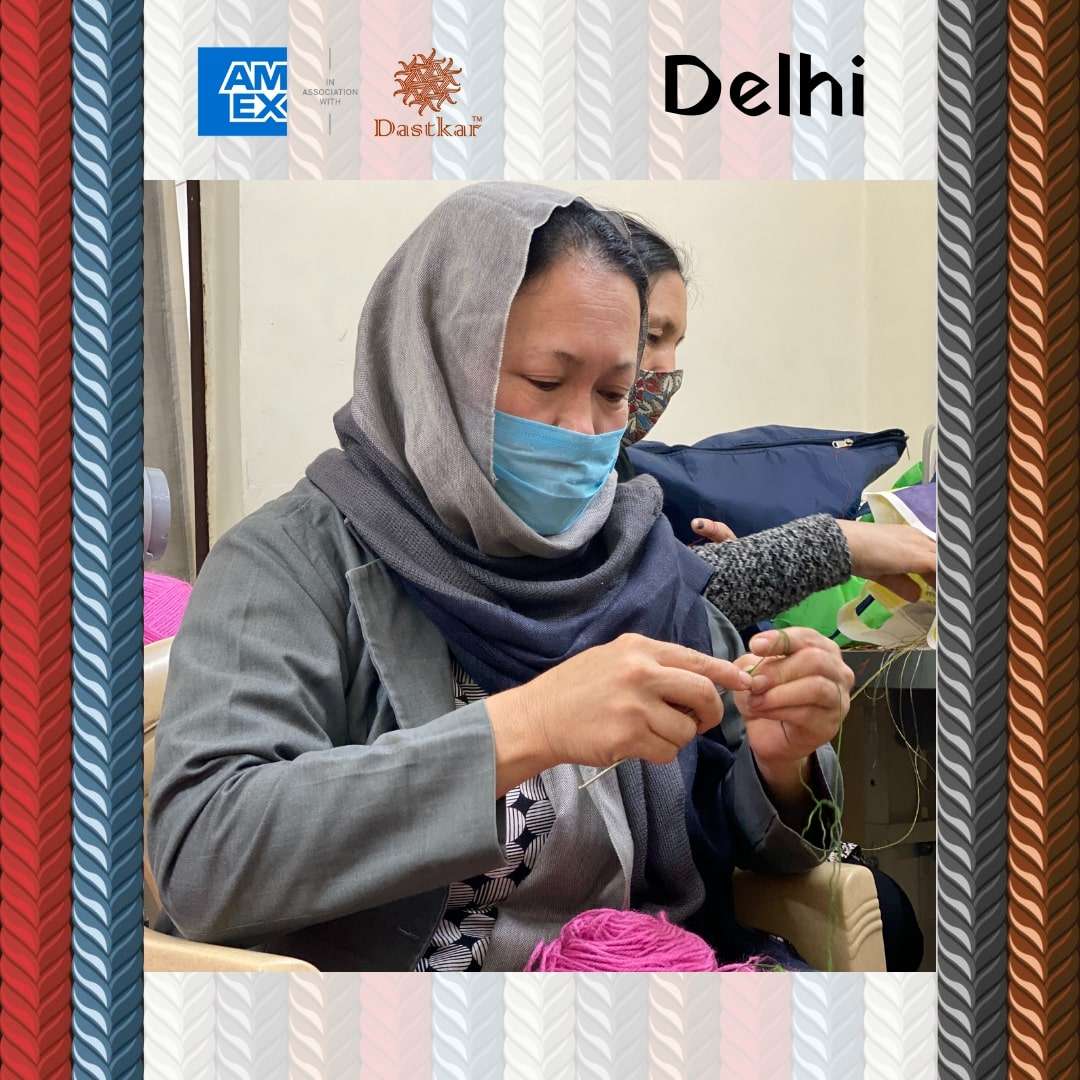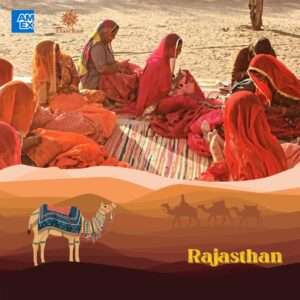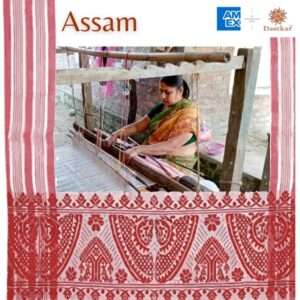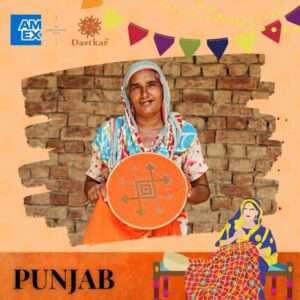Delhi, as the centre of Imperial power and privilege for hundreds of years, was a Mecca for talent and creativity. Craftspeople of all ilks migrated to Delhi in search of patronage and orders, developing a unique Delhi style. Jewellery, both silver and gold, enamelled and set with precious stones, textile weaving and printing, ivory and sandalwood carving, miniature painting, zardozi and silk embroidery, calligraphy, perfumery, potters, durry weavers, saddlery and armour makers, utensil, shamiana and furniture makers, musical instrument makers, book binders, bangle and kite makers – all catered to the court and those who copied its ways. Todays Delhi is very different, but a few crafts still exist, especially in the Old City – wood carvers and brass utensil makers, numerous colonies of potters who have graduated from matkas and diyas to more profitable decorative planters and lamp bases, dyers, embroiderers and printers now cater to the needs of the numerous fashion designers who have made Delhi their home. Numerous NGOs working in the slums and spreading Trans-Jumna colonies are also tapping into the creative hands of local women, using paper bags, beadwork and paper coil jewellery, crochet, embroidered and knitted garments, stuffed toys, stationery, and a host of organic and natural toiletries and foods as livelihood options for them . Delhi remains a hub of both talent and opportunity. Fertile soil for the AMEX project.
A craft initiative that is working towards uplifting women refugees from Afghanistan based out of Malviya Nagar, Delhi is Archissha. It has around 100 Afghan refugee women directly and indirectly associated with the initiative. They make products using Afghani embroideries and are constantly learning new techniques such as crochet. Coming from extremely poor conditions, our country provided them refuge however no citizenship, without any status and opportunities, well to do people of Afghanis resorted to doing multiple small jobs and became daily wage earners to sustain themselves. Archissha provided the women of these families a platform to earn a living leveraging their effort and creativity. Utilising their basic traditional skills they made items using the crochet and embroidery skills. To further elevate the economic distress that these women were facing due to the lockdown, they reached out to Dastkar for help and support. With the funds provided, Archissha developed a new range of woolen blankets delicately embroidered with crochet motifs & knitted blankets and paid off the wages of 20-25 women. They have made around 20+ blankets using their old embroidery techniques. The women were in dire need of help and support which was provided via the funding given by American Express through Dastkar’s Artisan Support Funds. They couldn’t afford to pay off their monthly house rents, put food on their tables as their income had completely halted due to the pandemic. The funds aided greatly in furthering the endeavours of Archissha in backing these women artisans from Afghanistan. “We are glad to be back at the centres and started work again post the lockdown. The orders at Archissha may have reduced post the lockdown, but it’s better to have something to do than no work at all.” says Tamanna from Archissha.





